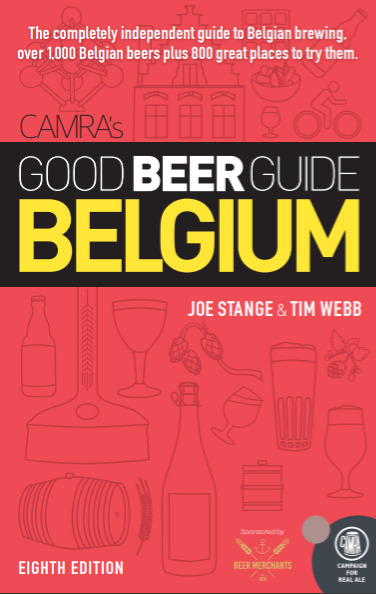Just to catch you up:
Remember that Washington Post article on "Belgium's upstart innovators"? I know, this is the third time I've brought it up. But it's where the conversation started, thanks to the quote from Wendy Littlefield of Vanberg & Dewulf.
She said that brewers like Alvinne and Struise are "really, arguably, are hurting the very culture that they claim to be arising out of."
Hang on, I thought. Now that is interesting. Not sure if I agree -- and it's worth noting that Littlefield says the quote was out of context -- but it's interesting nonetheless. So Littlefield and I struck up an email exchange on things like tradition and sense of place in light of brewers like Alvinne, Struise, Mikkeller, and others. I referred to them as part of a postmodern, transnational craft beer scene. (Insert "absolute elite" jab here.)
 Meanwhile the Pour Curator published an interview with V&D's Don Feinberg. Part of what he said: "There are a couple brewers in Belgium who are making beer for Americans. We’re interested in Belgium, we’re interested in their traditions ... There are certain flavors that are true to a type of culture, and if you don’t believe that, you’re one step away from making soda."
Meanwhile the Pour Curator published an interview with V&D's Don Feinberg. Part of what he said: "There are a couple brewers in Belgium who are making beer for Americans. We’re interested in Belgium, we’re interested in their traditions ... There are certain flavors that are true to a type of culture, and if you don’t believe that, you’re one step away from making soda."
Are you with me so far?
Good. Because I have some more thoughtful stuff from Feinberg and Littlefield. It takes the form of an essay defending the idea of terroir in beer. Here is Wendy to introduce it:
I promised to send Joe more thoughts on the topic of what we think a good and true Belgian beer is – or is not. Don and I talked a bit – then Don left the room and wrote the essay that follows ….at the end of July – What with our with our crazy schedules and a little wrangling about whether it should appear under both our names or just his - I am only now getting around to sending it to Joe and posting it on our blog. So what constitutes terroir in the beer world?
We commend you to the writings of Stan Hieronymous ... He has given the topic a good deal of thought.
Full disclosure: We founded Brewery Ommegang –producing Belgian style beers made in America on a former hops farm. We certainly thought they had terroir – but then again….an argument can be made to the contrary. What do you think?It is clear enough in the essay that terroir for Feinberg is much broader than dirt and rocks and weather. There is a sense of identity and taste from a particular place.
A great Saison made in Denmark is beer without a home, an orphan, a delicious flavor without roots, trapped in a glass. So is an IPA made in Belgium, or an Belgian Triple made in California.So how does a brewery find its terroir?
There may be other ways to create a discernable [sic] character that sets a beer apart and above others but to me the surest way is the house character that comes only from the combination of water, climate, brewery configuration and 1 yeast strain. This character, without exception, limits the styles the brewery can produce. But, when used successfully, it also means brewery X can produce one style of beer better than other breweries. It is why so many European breweries typically specialize and brew only one style, lambic, weizen, abbey etc.For lots more discussion fodder, here is the complete essay.
The floor is yours. And if any of you blogger types decide to riff on this elsewhere, please post a link in the comments if you don't mind.













